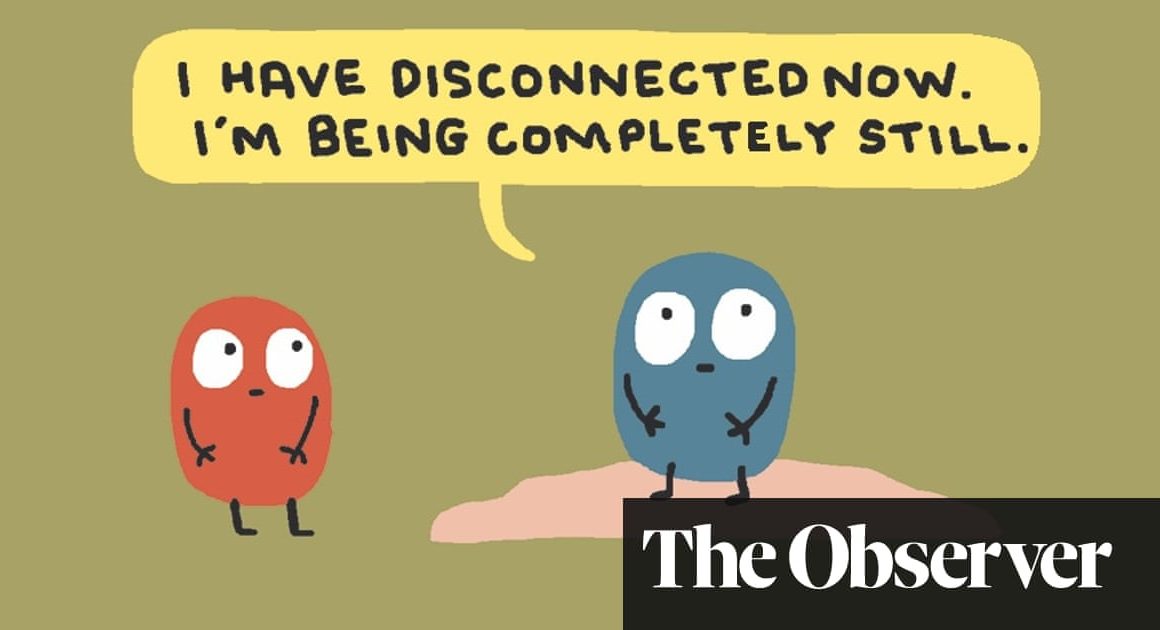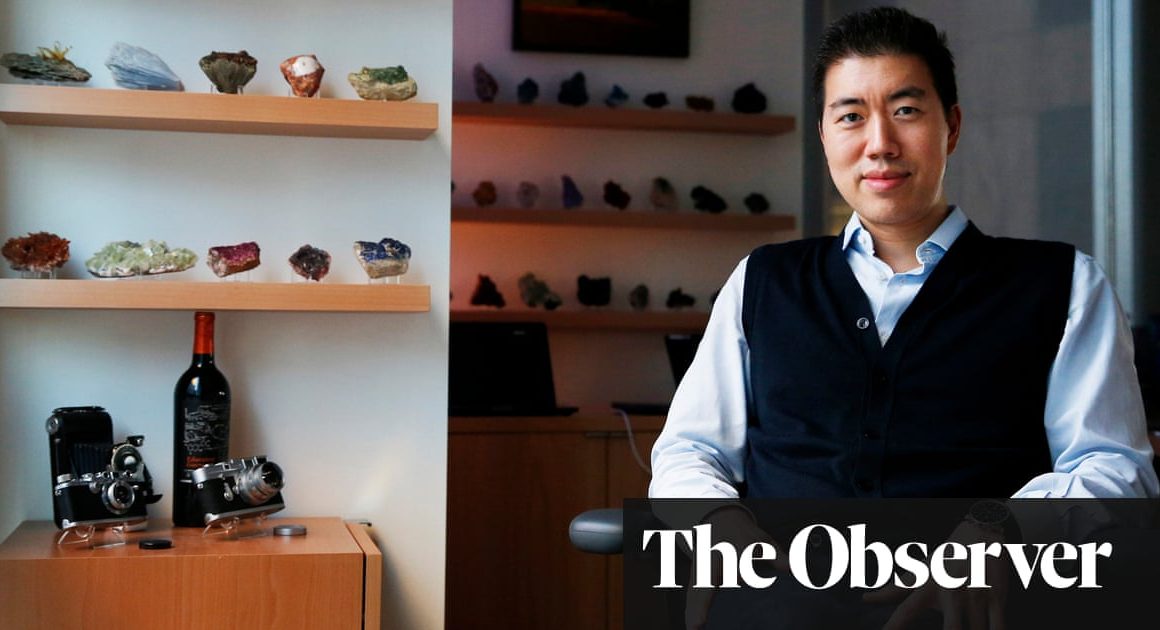Sean Combs is his mother’s child. According to Tim Patterson, a close friend who lived with the embattled Bad Boy Records label founder in the 70s, Janice Combs was famous for throwing parties at her home in Mount Vernon, New York, that were especially popular with pimps, drug dealers and other unsavory types. It wasn’t uncommon for the boys, still quite young at this time, to naively walk into rooms and find partygoers having sex. “That was just Saturday night,” Patterson said.
The legend of those first “freak-offs” is among the headline-grabbing revelations in Diddy: The Making of a Bad Boy – a new Peacock documentary that attempts to trace the Combs bell curve from its middle-class start to the height of cultural influence to the crash that tipped with Cassie Ventura’s bombshell sexual abuse lawsuit. The film joins the tidal wave of Diddy docs that have flooded the market since Combs’s federal indictment for sexual crimes last September, dropping in between a three-part series from TMZ (The Downfall) that arrived in April and four-part Max series (The Fall) that’s slated to release later this month. Still to arrive is the Netflix production Diddy Do It that was loudly and proudly announced by the rapper mogul 50 Cent, a perennial Combs skeptic.
The Making of a Bad Boy feels like a rush job to exploit this anxious marketplace. And the film doesn’t do much to satisfy viewers who have either followed Combs for the past three decades or watched Jaguar Wright and other industry “insiders” let fly with their authoritative tinfoil-hat theories. Among other sins, the doc tarries on the 1991 celebrity basketball game that triggered a stampede at New York’s City College, when more than 5,000 spectators showed up to a 2,700-capacity gym, reintroducing survivors who lost family members in the crush. And while you’d have to be stone-hearted not to feel for Sonny Williams – who reluctantly accepted a $50,000 settlement for his sister’s death even as Combs, then a burgeoning hip-hop impresario, was worth more than $40m (“a slap in the face”, Williams called the offer) – the tragic anecdote doesn’t do enough to stand up the central theory: that Diddy was a good boy turned bad.
The doc dangles the promise of never-before-seen images that will press the point home – sepia-toned Polaroids of Combs dressed to the nines, a boy hustler; behind-the-scenes footage of him at home, while still a cultural colossus, supposedly shot just before one of his explosive tantrums – but the dots in between never quite connect. Worse, the subject matter experts who get the most airtime are the same talking heads who have been most vocal about Diddy since the lawsuits began flurrying: Mylah Morales, the makeup artist who went public as a witness to Combs’s abuse of Ventura after leaked CCTV footage confirmed as much (“I was fucked up,” Combs explained, reaching for contrition); Gene Deal, the Diddy bodyguard who saw everything and stopped nothing; Ariel Mitchell-Kidd, the victim lawyer in the spotlight-seeking mold of legacy women’s advocate Lisa Bloom – who also appears, naturally.
But somehow more upsetting than this shock doc’s anonymous interviews with alleged assault victims of Combs (more on their claims later) is the recurring presence of psychoanalyst Carolyn West, whose main job is to tie Combs’s alleged horrors to childhood trauma. By her reckoning, it goes all the way back to Combs’s father, Melvin – an associate of the Harlem drug kingpin Frank Lucas. A sharp dresser and ladies’ man who went by the nickname Pretty Boy, Melvin was arrested in 1971 for drug possession and let go as his crew’s $5m heroin distribution chain was busted. Less than a year later Melvin was found shot to death – and the word on the street was he was killed for snitching on the whole operation. (Lucas makes a point of rejecting this in his biography, calling Melvin “one of the few people I considered a friend”.)
Sean was just three years old at the time. Even though Combs has reflected on that loss over the years, including in a documentary for his own Revolt TV cable network, the Peacock crew leaves it to West to riff on Combs’s arrested emotional development and residual feelings of abandonment and insecurity. The film leans on West’s psychologizing to bridge his transition from pretty momma’s boy spoiled rotten to a proper gang member with his own street name – Puff Daddy.
Statements from Combs’s legal team, rendered through slow-flashing title cards meant to parry specific allegations against Combs while reasserting his innocence, only seem to encourage production to present even wilder ideas – not least whether Combs had anything to do with the deaths of Tupac and Biggie. One woman, who remains anonymous, alleges Combs, with help from associates, had her plucked from a club and covered in baby oil that “felt like acid” before raping her with a TV remote. She recalls going into “a catatonic state” before escaping to a neighboring home to call the police – whom, she further alleges, reluctantly took down her report. Mitchell-Kidd, the woman’s attorney, confirmed this, but when production requested proof from law enforcement, they were stonewalled. That might have been the end if Albert Brown III didn’t have more to say about our bad boy.
Best known by the stage name Al B Sure!, Brown is a prominent foil in Combs’s villain arc – the new jack swing superstar who was climbing the R&B charts as Combs was starting out with Uptown Records. In one of many wry asides, Brown recalls being at a recording session as his girlfriend Kim Porter was holding their newborn son, Quincy, when Combs walked in and said, clear enough for bystanders in the room to hear: “I wish I had a beautiful girl like that.” (Cut to years later: Combs, on top of the world, is introducing Porter as his girl and Quincy as his son …) Brown remained close with Porter until her death in 2018, which conspiracy theorists blame on Combs. And even though pneumonia was determined to be the official cause of Porter’s death, that hasn’t stopped Brown from suggesting foul play over the years. In the documentary, as he has in other venues, Brown straight-up calls Porter’s death murder. “Am I supposed to say allegedly?” he purrs into the camera.
Brown further claims Porter was drafting a memoir at the time of her death – an assertion her children, Quincy included, have forcefully denied. What’s more, Brown doesn’t disabuse conspiracy theorists who hold Combs responsible for Brown’s own near-death experience in 2022, which he calls a hit job. Finally, to put a fine point on it all, Mitchell-Kidd – again: a lawyer – pronounces Combs “an embodiment of Lucifer”. By the time West, the shrink, circles back to the question of personal accountability, the documentary’s 90 minutes are all but exhausted. All the while, far more interesting avenues along the Combs arc, such as who was in his network of enablers and how they were dispatched, go largely unexplored.
It’s remarkable that film-makers were able to get this thing past the corporate counsel at NBCUniversal. It goes to show how far the standards for documentary film-making have dropped, but also how easy it is to pile on Combs at this low ebb. Even if it is true – as Patterson, the boyhood friend who lived with Combs, asserts – that “monsters are created over time”, Combs was not some Marvel character doomed to an unfortunate timeline. He was a man who had all the means at his disposal to work out his daddy issues in therapy. Why should a documentary go out of its way to apologize for him when he could barely be bothered to do that himself?












